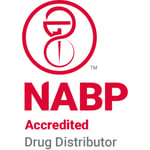Health care is an ever-changing industry. The fluctuation in technology alone can be hard enough to keep track of, but modern medical institutions also must deal with rapidly increasing costs and ever-shrinking resources. This is especially true of hospital pharmacies where tighter budgets can stretch staff thin and it can be difficult to optimize pharmacy staffing.
Continue reading →How to Optimize Pharmacy Staffing through Repackaging
Three Hidden Savings of Outsourced Repackaging
For many hospitals, in-house repackaging often seems like the most cost-effective way to package drugs into unit-dose. Unfortunately, with limited resources, hospital pharmacies don’t always have the time needed to focus on packaging. To offset staff time spent on packaging, many pharmacies purchase whatever is available in commercial unit-dose. Unfortunately, many of those unit-dose purchases have a significant cost premium versus bulk bottles.
Continue reading →Is Your Pharmacy Ready to Meet FDA Unit-Dose Repackaging Guidelines?
Here’s a checklist to help you determine if your hospital pharmacy would comply with upcoming FDA unit-dose repackaging guidelines.
Do you have stability studies to justify your expiration dating (beyond-use date) on repackaged drugs?
- FDA July 2020 guidance states six months dating (or 25 percent of the remaining manufacturer expiration date, whichever is less) in the absence of a risk-based approach to stability studies for oral solids.
- The FDA has not given any guidance on allowable expiration dating for repackaged oral liquids.
Do you know what class of packaging materials you use?
- USP Class A materials can support one year dating with stability studies.
- USP Class B materials can only support six months dating.
- USP Class D materials can only support 30 days dating.
Does your pharmacy’s unit-dose packaging process comply with cGMP requirements?
- Proposed FDA guidelines ensure packaging and dating consistency regardless of location.
- Cleaning validation to prevent cross-contamination.
- Did you know? Many high-speed oral solid packagers use a common chute resulting in a high chance of cross-contamination among drugs dispensed.
- Packaging materials must comply with FDA guidelines for water vapor and light transmission.
- Canisters in packaging machines should be proven as capable to protect the stability of the product while in storage. Canisters would be considered a container closure system and comply with USP requirements for light resistance.
Do you have a separate quality team overseeing your packaging operation?
If you answered “NO” to any of these questions, here’s what it could mean for your pharmacy:
More packaging. More labor. Shorter dating. More waste. Higher costs.
Proposed changes in pharmacy packaging requirements could have a significant impact on your operations and budget. Shorter dating and more regulations could mean more time spent on packaging, more waste due to shorter dating, more personnel needed for packaging and higher costs.
As the world of hospital pharmacy unit-dose repackaging changes, will you be ready?
Lower your risk. Improve medication safety. Extend your dating. Reduce your waste.
Contact us today to learn how Safecor Health can help.



